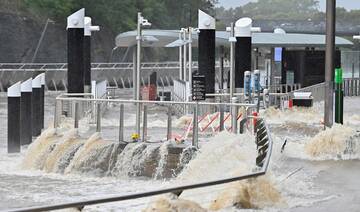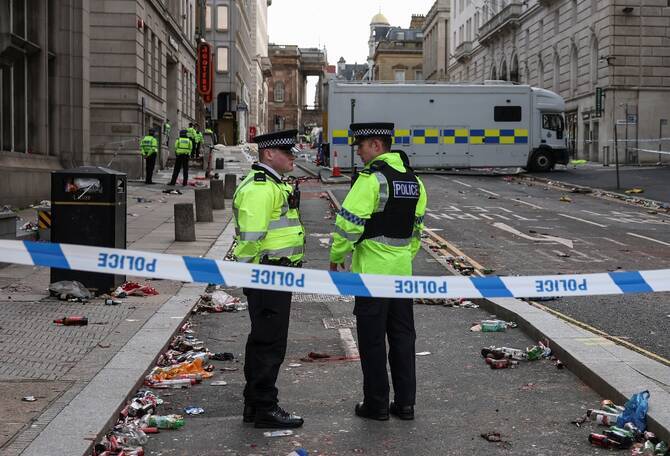MANILA: Filipinos joined Catholics around the world on Sunday to welcome the newly elected leader of their church, expressing hope and optimism for the papacy of Pope Leo XIV.
Cardinal Robert Francis Prevost became the 267th pontiff of the Roman Catholic Church on Thursday. The 69-year-old is the first North American pope and had spent more than two decades as a missionary in Peru.
Pope Leo follows in the footsteps of Pope Francis, who died on April 21 after a series of health issues. He was 88 years old.
In the Philippines, home to about 85 million Catholics, devotees who had closely followed the conclave to elect a new pope rejoiced at the outcome.
“He feels like the kind of leader the Catholic Church needs right now — someone who will continue the work Pope Francis started, especially in fighting for the rights of migrants and calling for peace by stopping the current wars,” Kris Crismundo, a church choir member from Bulacan province, told Arab News.
“It’s clear that he's someone with a heart for service, compassion, and unity, which are exactly the qualities the world needs more of today … I look forward to seeing where his leadership takes us.”
The Philippines is one of only two majority Christian countries in Asia, along with tiny East Timor.
With nearly 80 percent of the population belonging to the Catholic Church, many in the country have a special affection for their religious leader.
During a 2015 visit, Pope Francis drew a record crowd of more than six million people at a historic mass in Manila. When he died, masses were held throughout the archipelagic country in his honor.
“I have loved Pope Francis, but we have to accept God’s divine plan. A new pope is always a fresh start, and can give hope to all,” Manila-based journalist Karen Ow-Yong told Arab News.
She sees Pope Leo’s background in Peru as a “glimpse of what his papacy” will look like.
“We hope for a modern-day Pope who can relate and address modern-day challenges facing Catholics,” she said. “I wish for the new pope to be the light that shines on the darkest issues of humanity today, as well as to push for transparency and accountability, especially in issues and controversies involving the church.”
Jaime Laude, a journalist and former seminarian from Antique province, highlighted similarities between Pope Leo and his predecessor.
“Just like the late pontiff, he's been deeply immersed with the marginalized people in society like those in the Philippines, especially in Latin America where for decades he’s been assigned,” Laude said.
“I, for one, have high hopes that the new pontiff will further strengthen the Catholic faith in all of us Roman Catholic believers … also hoping that his advocacies through faith and teachings will promote world peace.”
Many Filipinos were aware that Pope Leo was no stranger to the Philippines, because he has visited over the years, according to reports from local media.
Angeline Patricia Fae, an analyst in Manila, is hoping to see a continuation of Pope Francis’s papacy.
“I hope that the new Pope Leo XIV will continue what Pope Francis preached and embodied: a church that is welcoming and accepting,” she told Arab News.
“I pray for a fruitful rule and as well for his well-being. God bless.”
Other Filipinos are hopeful that the new pope will bridge divisions in an increasingly chaotic world.
“I wish the holy father to be a prophet of dialogue in our divided world,” Ted Tuvera, a Filipino theologian and candidate for priesthood, said.
“Instead of seeing the ‘other’ as ‘others,’ may we see and meet them as neighbors.”
Monsi Alfonso Serrano, who is based in Manila, believes that Pope Leo’s election will neutralize the divisions created by US President Donald Trump.
“The name of Cardinal Robert Prevost didn’t surface as a potential pontiff … This is how God works; mysterious and beyond human comprehension,” Serrano said.
“The pope’s first address was a call for building bridges since Trump has been enjoying driving wedges between different countries in the world … The world needs a pope that calls to build bridges instead of walls.”






























